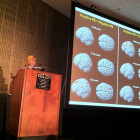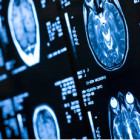
The young are heated by Nature as drunken men by wine. -- Artistotle
Adults' enduring perplexity about teenagers are captured in quotes by Aristotle and Shakespeare in The New Science of the Teenage Brain, the cover story of the October National Geographic Magazine. The article, by David Dobbs, explains how young people's lives are shaped by the mind-blowing reorganization occurring in the brains of adolescents between the ages of 12-25. The article is fascinating, and it's worth reading the entire piece. It's also a fabulous tool for us to use to get policymakers' attention as to why so many policies and programs like Scared Straight, lock them up, and zero tolerance don't work.









